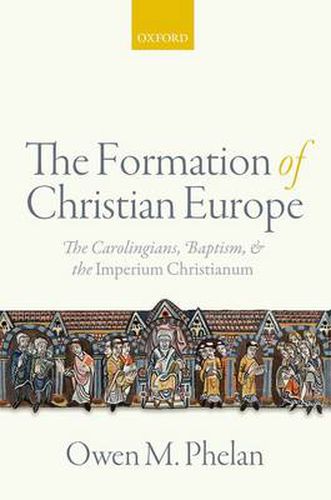Readings Newsletter
Become a Readings Member to make your shopping experience even easier.
Sign in or sign up for free!
You’re not far away from qualifying for FREE standard shipping within Australia
You’ve qualified for FREE standard shipping within Australia
The cart is loading…






The Formation of Christian Europe analyses the Carolingians’ efforts to form a Christian Empire with the organizing principle of the sacrament of baptism. Owen M. Phelan argues that baptism provided the foundation for this society, and offered a medium for the communication and the popularization of beliefs and ideas, through which the Carolingian Renewal established the vision of an imperium christianum in Europe. He analyses how baptism unified people theologically, socially, and politically and helped Carolingian leaders order their approaches to public life. It enabled reformers to think in ways which were ideologically consistent, publically available, and socially useful.Phelan also examines the influential court intellectual, Alcuin of York, who worked to implement a sacramental society through baptism. The book finally looks at the dissolution of Carolingian political aspirations for an imperium christianum and how, by the end of the ninth century, political frustrations concealed the deeper achievement of the Carolingian Renewal.
$9.00 standard shipping within Australia
FREE standard shipping within Australia for orders over $100.00
Express & International shipping calculated at checkout
The Formation of Christian Europe analyses the Carolingians’ efforts to form a Christian Empire with the organizing principle of the sacrament of baptism. Owen M. Phelan argues that baptism provided the foundation for this society, and offered a medium for the communication and the popularization of beliefs and ideas, through which the Carolingian Renewal established the vision of an imperium christianum in Europe. He analyses how baptism unified people theologically, socially, and politically and helped Carolingian leaders order their approaches to public life. It enabled reformers to think in ways which were ideologically consistent, publically available, and socially useful.Phelan also examines the influential court intellectual, Alcuin of York, who worked to implement a sacramental society through baptism. The book finally looks at the dissolution of Carolingian political aspirations for an imperium christianum and how, by the end of the ninth century, political frustrations concealed the deeper achievement of the Carolingian Renewal.